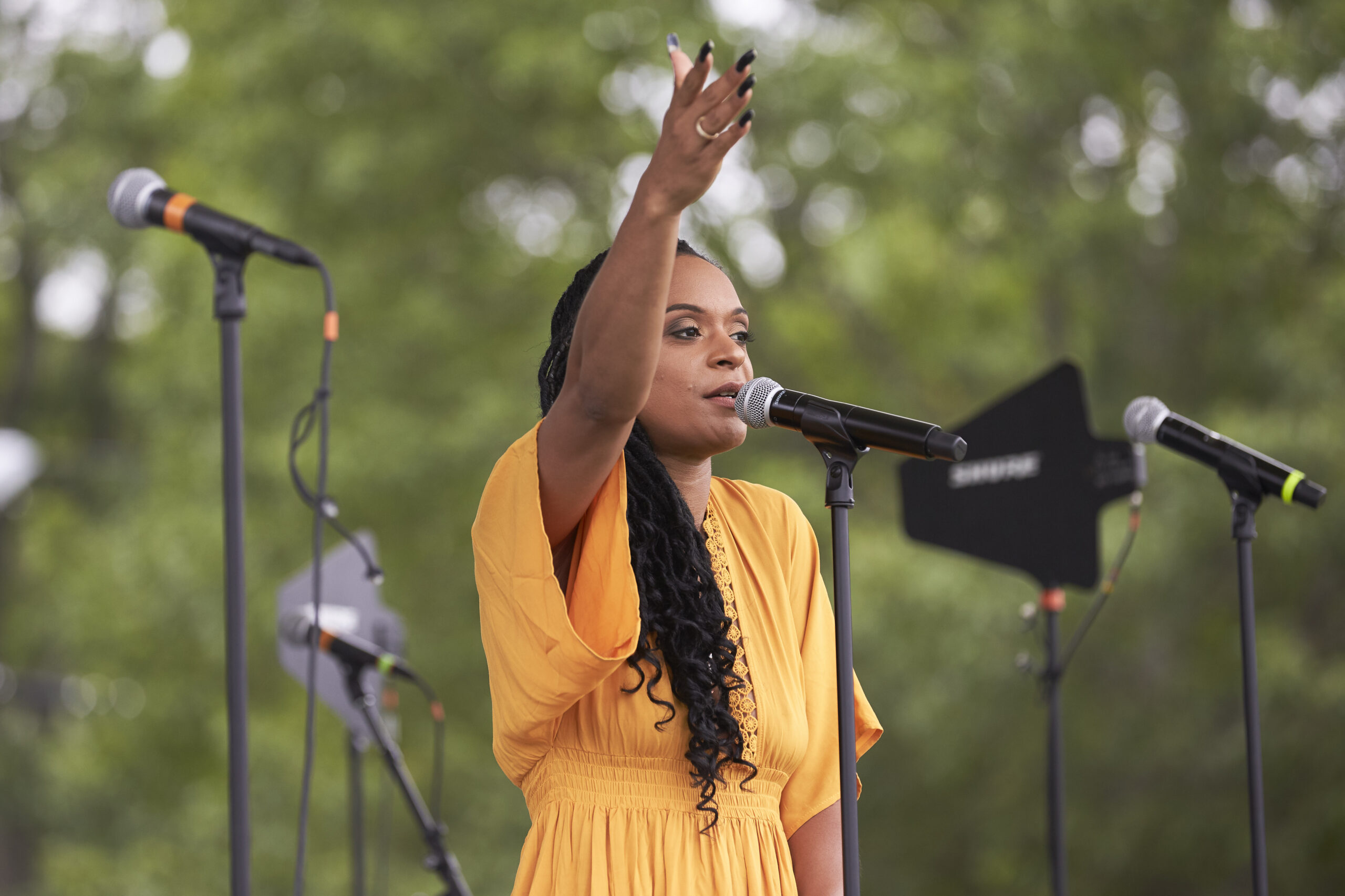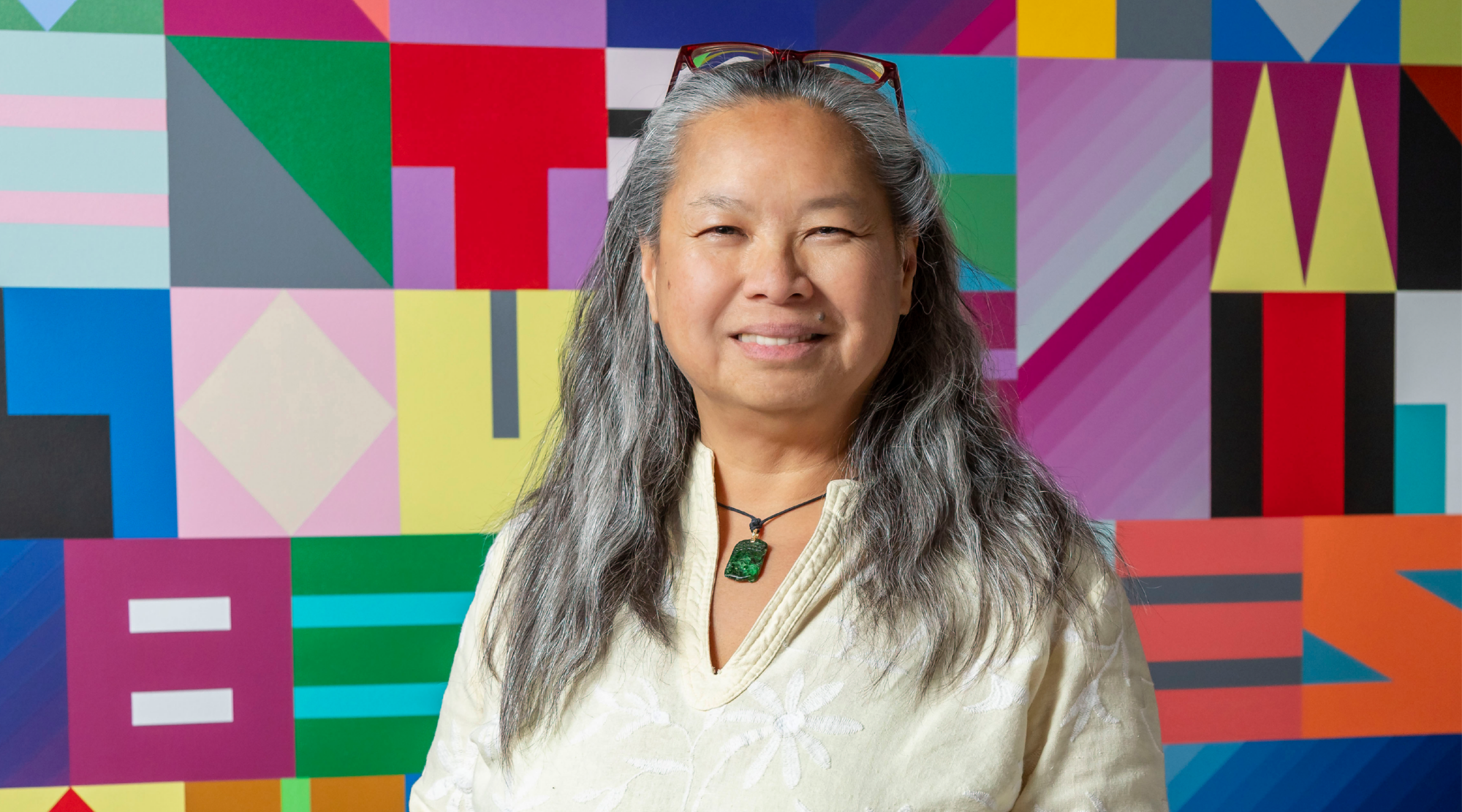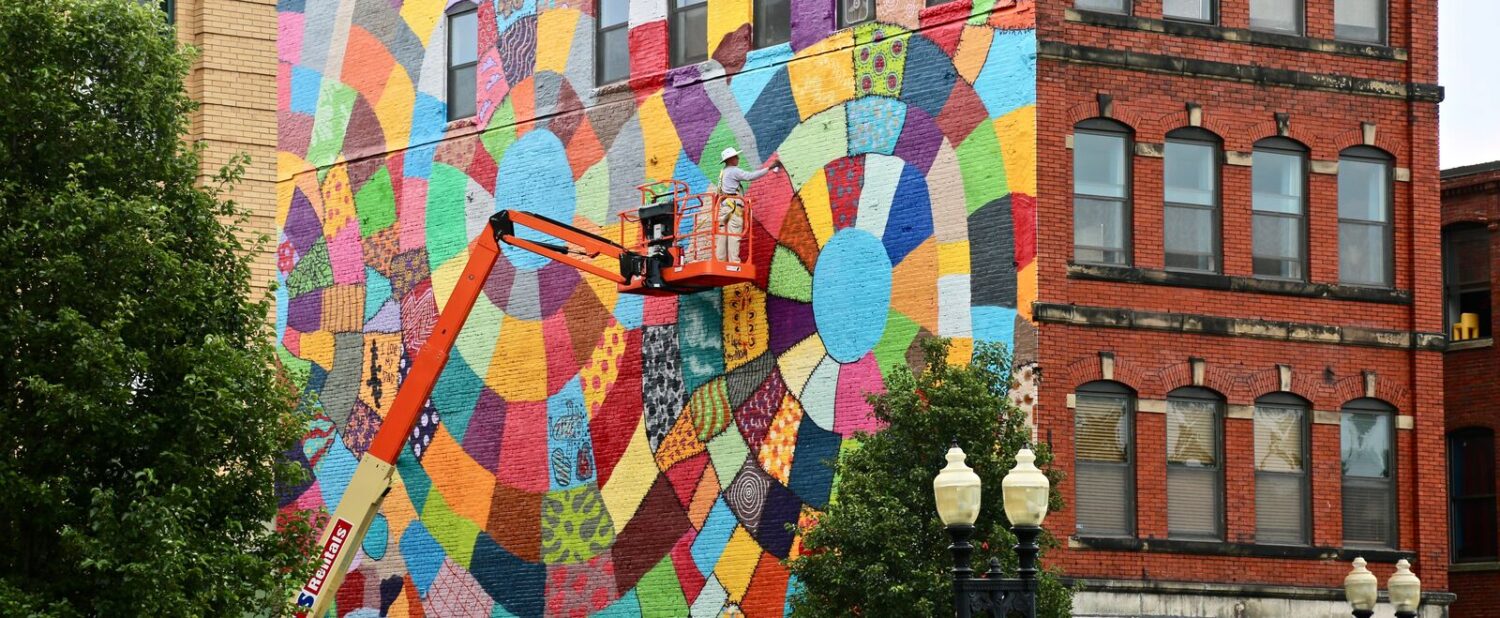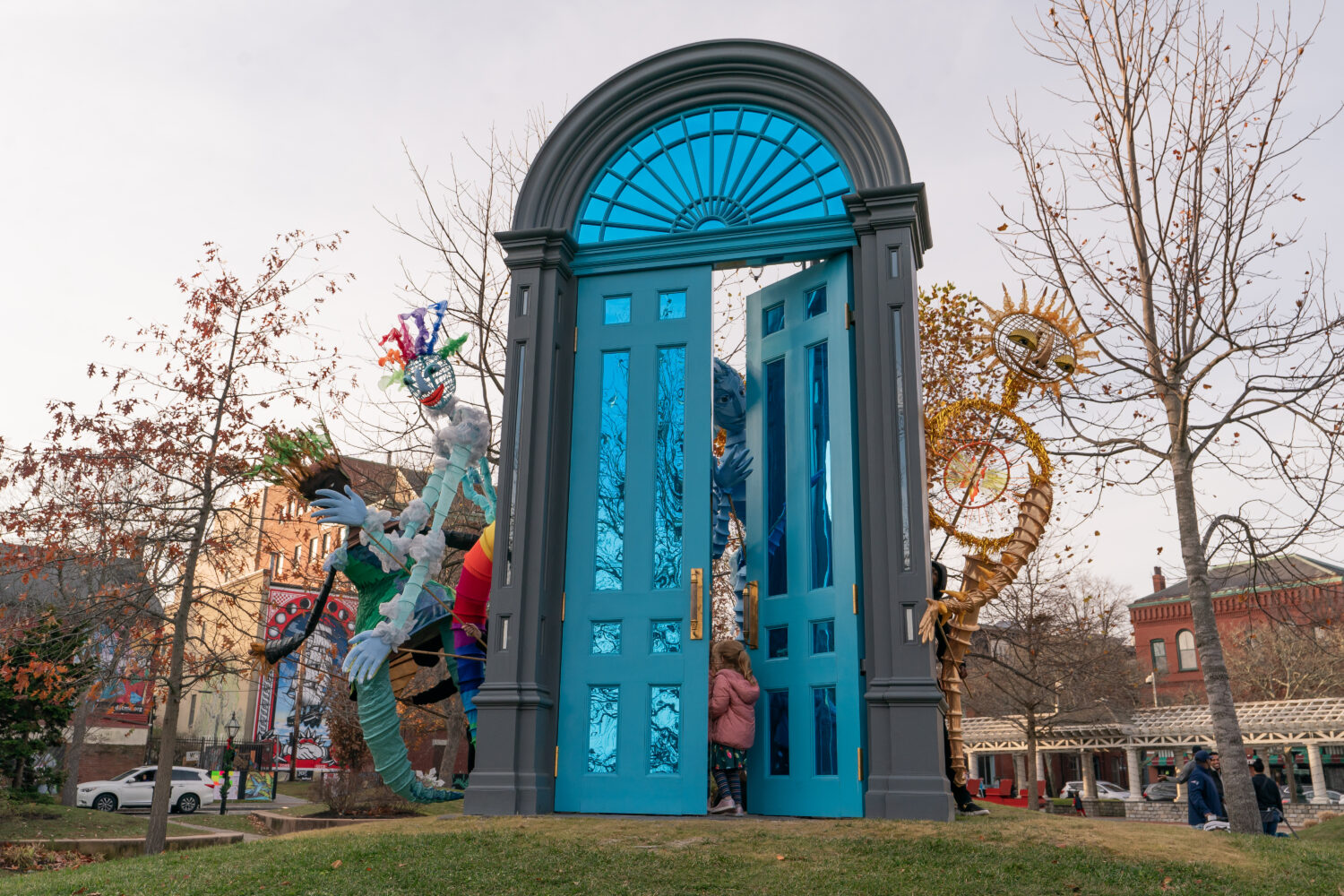2020 was enormously disruptive for the arts. The COVID-19 pandemic and racial justice uprisings revealed deep power and wealth inequities, and vulnerabilities of marginalized communities across society. We saw the tenacity and inventiveness of artists and cultural workers to pivot and create new ways to engage their communities and audiences. Yet, the long-broken business models and exploitive practices in our sector came more fully to light. We saw a wave of high-profile “call-outs,” where arts industries and organizations were publicly challenged by artists, staff members and other constituents to do better, to examine their cultures, complicity, and privilege, and to dismantle practices within their own institutions that reinforce white supremacy. We also saw a more widespread acknowledgement of the historic lack of investment in artists and organizations led by and rooted in Black, Indigenous, and people of color (BIPOC) communities, and of grantmaking practices that reinforce such inequities.
Through Barr’s Arts & Creativity Program, we have been working to advance racial equity for years, with a focus on increasing diversity and relevancy in the arts in Massachusetts. We believe that communities become dynamic and thriving when their arts and creative expression reflect the full range of cultures, traditions, and voices in those communities. In this post I will describe where we’ve been and where we are headed, acknowledging this is but the first steps toward an urgent need to integrate racial equity more explicitly across our strategies.
The Evolution of Barr’s Arts & Creativity Program
The goal of the Barr’s Arts & Creativity program is to: Elevate the arts and enable creative expression to engage and inspire a dynamic, thriving Massachusetts.
To advance this goal, Barr’s Arts & Creativity program takes a systemic approach, investing in aspects of the arts sector we believe hold great power for creating large-scale change: visionary leaders and anchor organizations, necessary infrastructure for the arts ecosystem, and leading-edge practices.
When I arrived at Barr in 2012, the Foundation was shifting our grantmaking approach from project grants to multi-year operating support. At the time, Barr was seeking to focus on fewer, larger grants in the belief that those grants could have greater impact with greater efficiency. This shift limited our direct grantmaking to smaller budget organizations and organizations of color. Nonetheless, as Boston is a “majority minority city” and recognizing Boston’s history of racial segregation, we focused on relevancy and increasing diversity and inclusion, and invested in artistic practices that engaged residents and in anchor cultural organizations in neighborhoods like Upham’s Corner and Chinatown. Boston’s cultural plan (supported by Barr and Klarman foundations) had an explicit focus on cultural equity and active participation from all of Boston’s neighborhoods.
We also sought to build support for artists, the critical engines of creativity and cultural expression. To do so, and with a particular focus on artists of color, Barr began forging new partnerships with community foundations and regional and national intermediaries. We sought partners who also value strong relationships with communities and grantees, who shared our priority of systems change, and who could make direct grants and provide customized supports to individual artists and small organizations. Our investments and partnerships have helped catalyze and grow a wide range of BIPOC arts activity, including support for:
- Artists to create new work and community engaged practices, such as Live Arts Boston, a partnership with The Boston Foundation, and the Creative City Boston and Spatial Justice initiatives, both in partnership with New England Foundation for the Arts;
- Equitable community and economic development, such as the Creative Catalyst Grants in partnership with MassDevelopment’s Transformative Development Initiative, which supports locally initiated, public-facing projects that advance arts- and culture-based economic development and neighborhood revitalization in Gateway Cities; and
- Increasing the visibility of artists and communities of color by investing in the rapid growth of WBUR’s The ARTery, whose leadership has been committed to journalistic integrity, stories reflective of Boston’s diverse communities, and nurturing BIPOC arts reporters.
Centering Racial Equity in Barr’s Arts & Creativity Program
Over the past year, we have come to see even more clearly that a central focus on racial equity is required to achieve the goal of a dynamic, thriving Commonwealth, with adaptive and relevant organizations with broad public engagement and support. The Foundation’s explicit commitment to racial equity and internal examination of its practices affirm the Arts & Creativity Program’s determination to further racial and cultural equity in the arts in Massachusetts and is allowing us to go deeper.
We are committed to this work for the long term. Building on our current strategies and investments, we envision three expanded areas of work to center racial equity over the next ten years:
- Centering BIPOC artists, organizations and communities in our program strategies, including significant new grantmaking. Primarily through intermediary partners who bring relevant relationships and capacity, we aim to keep expanding support to and engagement with racially and culturally diverse voices, artistic expressions, and communities.
- Supporting partners to become increasingly anti-racist, thereby bolstering their adaptive capacity, relevancy, and civic leadership. We recognize that this is an ongoing journey that requires deep organizational transformation.
- Committing to equitable philanthropic practices. Our current work, including our major initiatives, was designed with trust-based philanthropy practices, including co-designing with grantees, transparency and responsiveness, multi-year unrestricted funding, and support beyond financial resources. Nonetheless, we know that we will need to continue being open to modifying our approach as we expand our knowledge and build deeper relationships within BIPOC arts communities.
Working in this way takes time – particularly our commitment to co-design and working in partnership with organizations. However, we also know that BIPOC arts organizations and artists have long been under-resourced and have been hit hard by the pandemic. We have begun ramping up our grantmaking to BIPOC arts organizations and added five new organizations of color to our portfolio early this year through an initial set of short-term relief grants: Elevated Thought (Lawrence), Southeast Asian Coalition of Central Massachusetts (Worcester), The Loop Lab (Cambridge), Angkor Dance Troupe (Lowell) and Art for the Soul Gallery (Springfield). We selected these first five after extensive consultation with partners and colleagues across the state, focusing on characteristics which position them as cultural anchors, such as embeddedness in BIPOC and immigrant communities; strong community activism; authentic, often multi-generational, leadership; demonstrated track record of resiliency and consistency over time; and quality of creative expression. We also joined the Boston Mayor’s Office of Arts and Culture and The Boston Foundation to support 17 Boston-based arts organizations of color which offer year-round programming and regular opportunities and supports for BIPOC artists to make and show work. We have a unique opportunity to further this progress and double our funding of these priorities through our partnership on Ford Foundation’s America’s Cultural Treasures initiative over the coming five years and will provide further updates in the coming months.
And as part of our efforts to accelerate change in the systems surrounding these artists and organizations, we recently renewed our investment in Center for Cultural Innovation’s (CCI) AmbitioUS initiative, which seeks to advance economic justice and the infrastructure necessary to beget thriving cultural centers and tomorrow’s Black and Indigenous Wall Streets. CCI uses various financial tools—grants, loans, and investments—to foster solutions that give artists and cultural communities ownership, power, and economic self-determination. For example, their funding is supporting:
- a cooperatively owned and governed business of and for African American creative content producers working in the digital realm;
- the East Bay Permanent Real Estate Cooperative, which enables Black Oaklanders to collectively own cultural properties; and
- The Boston Ujima Project which is using cultural strategies to create strong economies for communities of color in the Boston region.
To further investigate this line of economic systems change, Barr, Hewlett and Rainin foundations supported Grantmakers in the Arts to explore how the grantmaking community can support culture-workers and artists through an increasingly just economy. Earlier this year, Grantmakers in the Arts released Solidarity Not Charity: Arts & Culture Grantmaking in the Solidarity Economy, a commissioned report and interactive website that provides an overview of the Solidarity Economy, culture-workers’ role in it, and what grantmakers may do to support it through recommendations and an action checklist.
This is a defining moment for all of us to re-imagine an arts ecosystem that is more just, equitably resourced, and community rooted. We have many questions about how to get there but are determined to do what we can to bring that vision into being. We know that along the way we’ll need to keep listening to, learning from, and adapting alongside our many artist, community and institutional partners.




